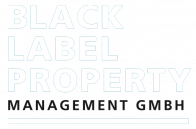The purchase contract states the change of encumbrances and benefits. You become the owner when the keys are handed over. But you only become the owner when you are entered in the land register. The party listed in the land register is always liable to pay for administration. If there are outstanding debts, the parties must settle this between themselves, regardless of what the purchase contract says. The administrator always wants the money from the party listed in the land register.
If the purchase contract states that the new owner will pay the house fees after the purchase price has been paid, this is an agreement between the seller and buyer. The owner listed in the land register always owes the house fees until the transfer/transfer actually takes effect.
How much is the house rent?
The house allowance is always a forecast. Settlement takes place at the end. So if someone has a figure in the purchase contract, it can only be a current forecast.
Purchase contracts, especially for new builds, often contain a figure that does not reflect the reality when ownership is transferred. For example, the general management costs at the start of construction are lower than in later years when the apartment/property is occupied. This should also be addressed in advance by the estate agent when the property is sold.
It is in the interests of both the seller and the bank to calculate running costs in the lower range. It should make sense for the buyer to factor in higher costs if he has a management plan that is older than 24 months.
It is generally not recommended to disregard ancillary costs. The tenant you may be considering for an investment may only cover up to 70%.
And much more applies to owner-occupation: It is not what is stated in the purchase contract as "current house money" that is to be paid, but what is actually incurred each month. And this is the respective share of the statement of accounts for the previous financial year prepared in the coming year.
What happens if I do not agree with the invoice?
Once a year, all owners (at least those who want to have a say) meet at the owners' meeting. The figures are presented here and voted on jointly.
The property management sends all reports and receipts in advance; in the best case, there is the advisory board or an individual owner or perhaps even an external auditor who looks at all invoices and receipts and checks them for plausibility. And then a decision is made as to whether income and expenditure match - nothing else.
If it is the case that the administration has made payments that were not agreed, this is a point of attack. If there are questions about individual consumption, this is a point of attack. However, a separate application must be submitted for this. The settlement of accounts for a financial year always relates only to what was presented on the basis of derivable figures and what was actually incurred. And this is allocated to the ratio of all owners.

